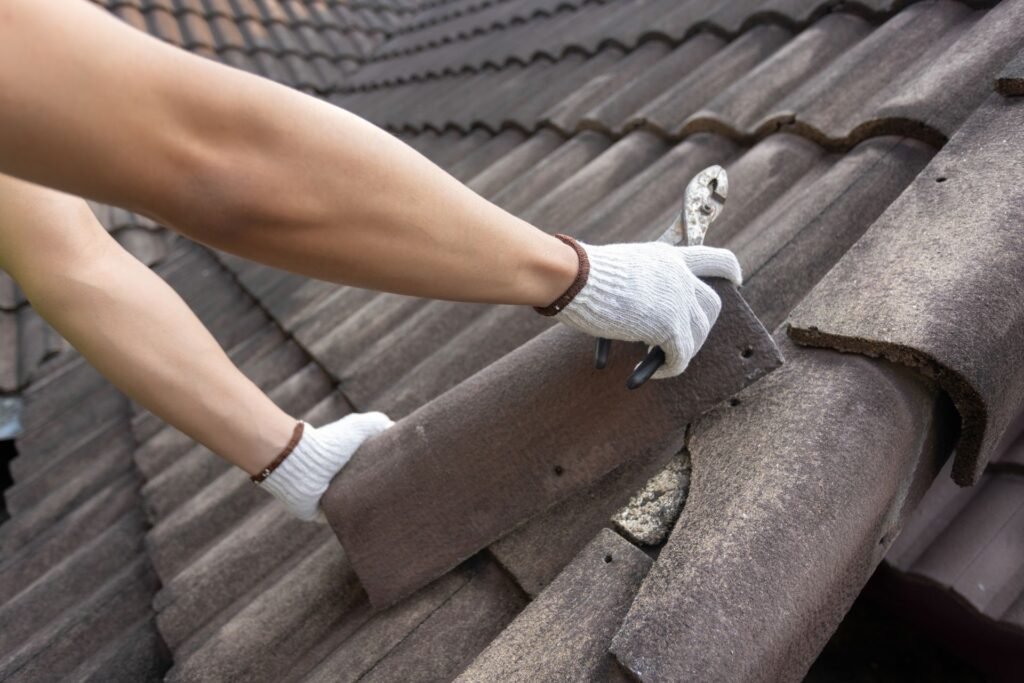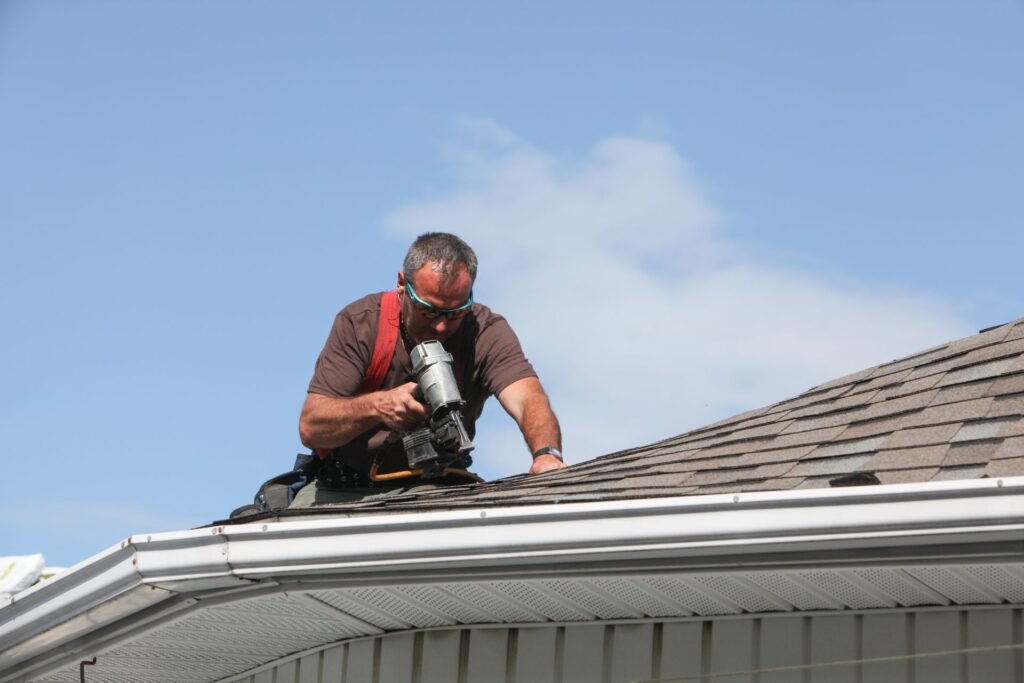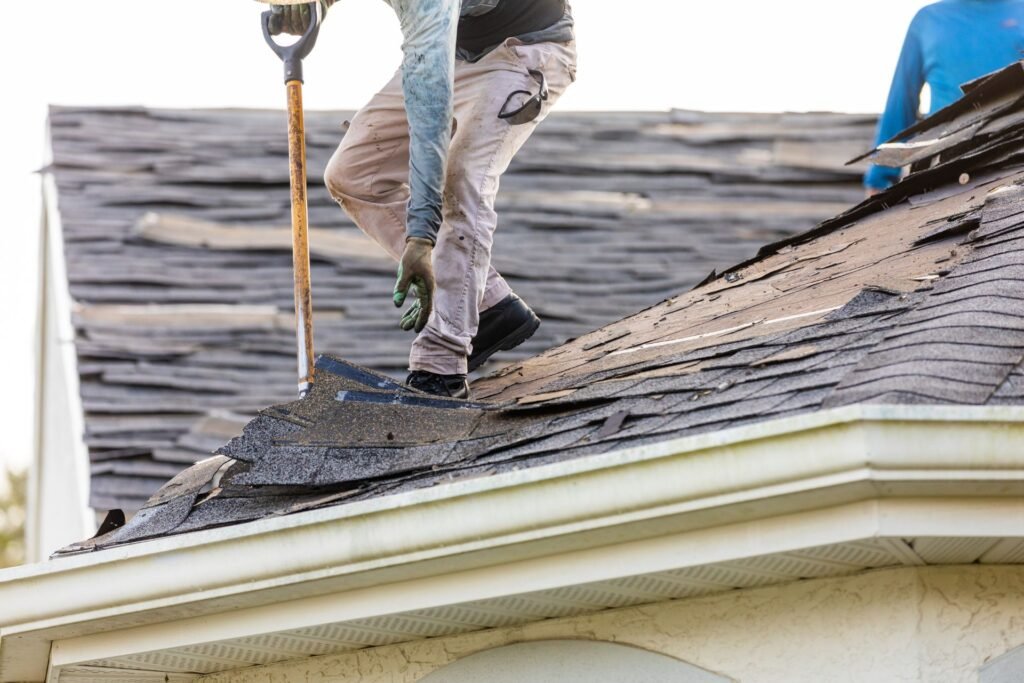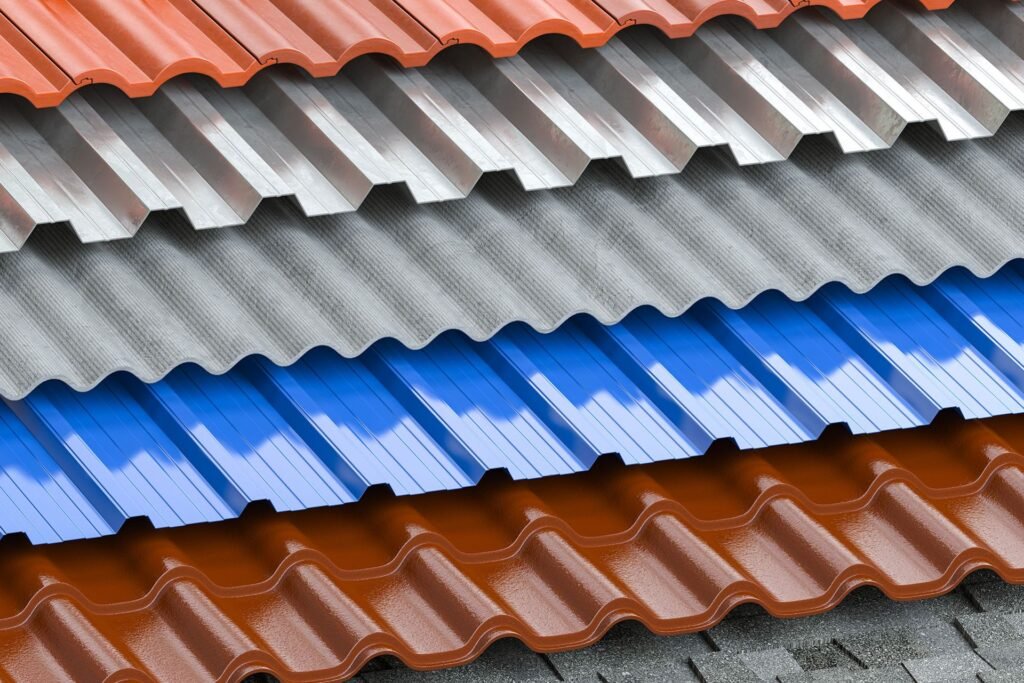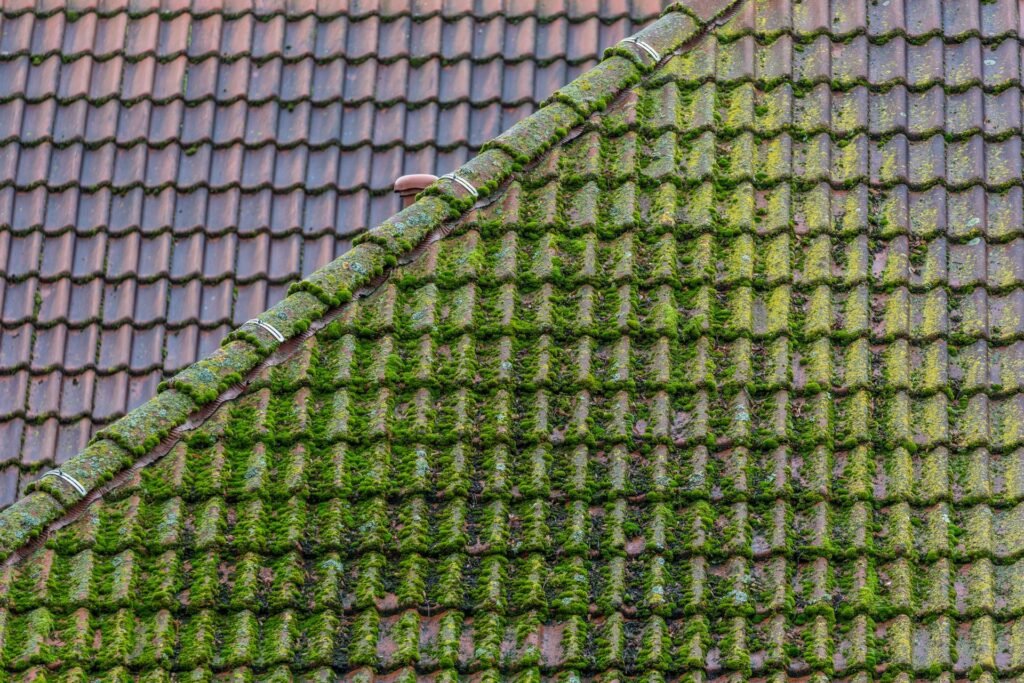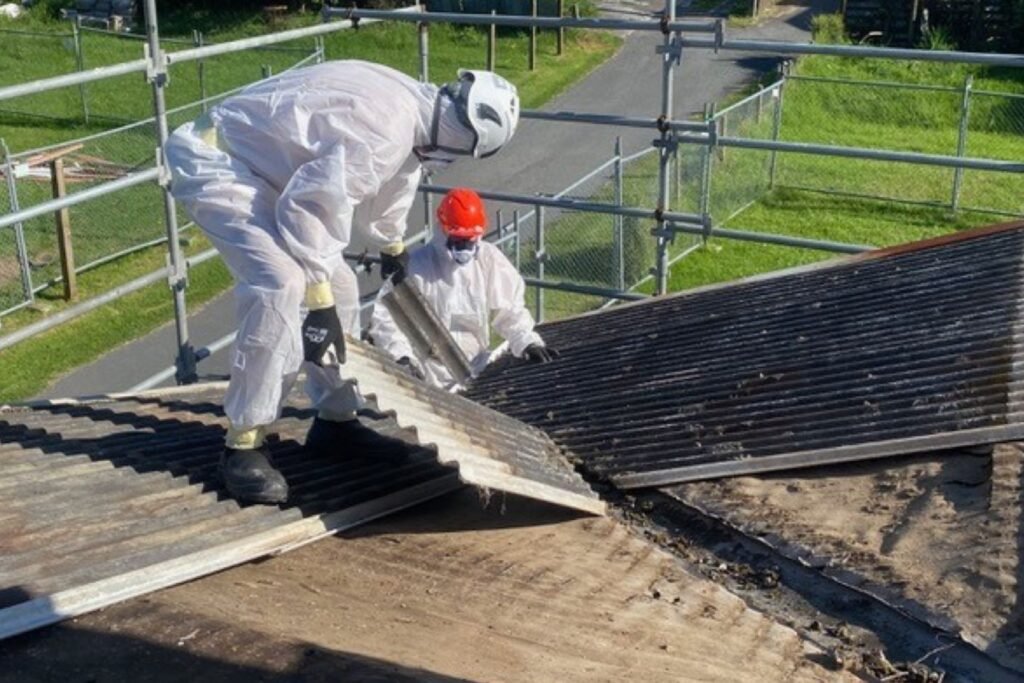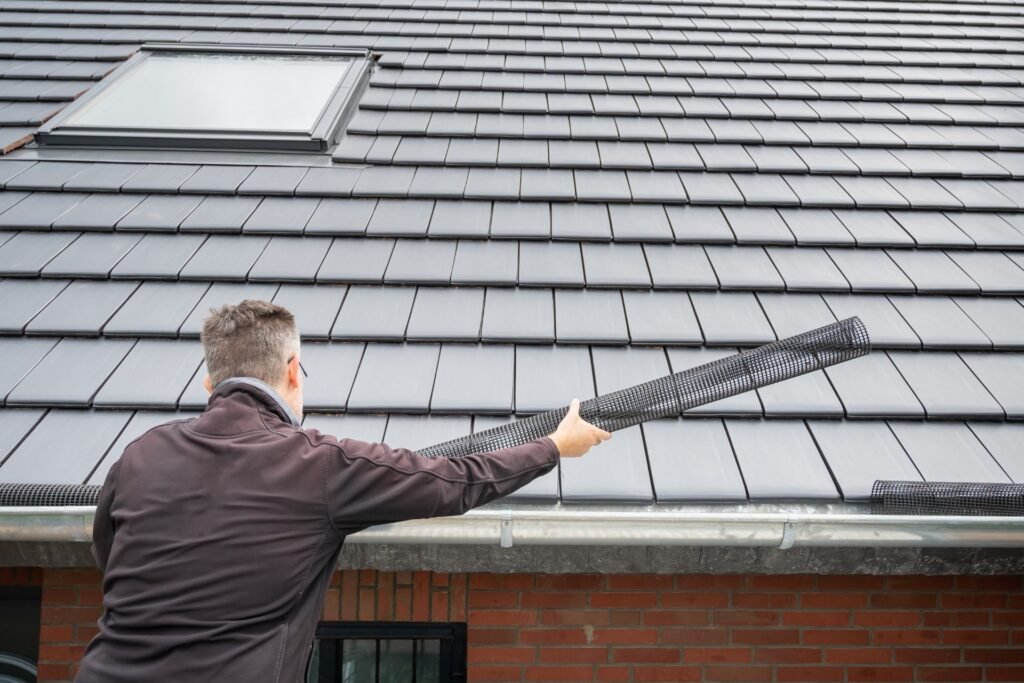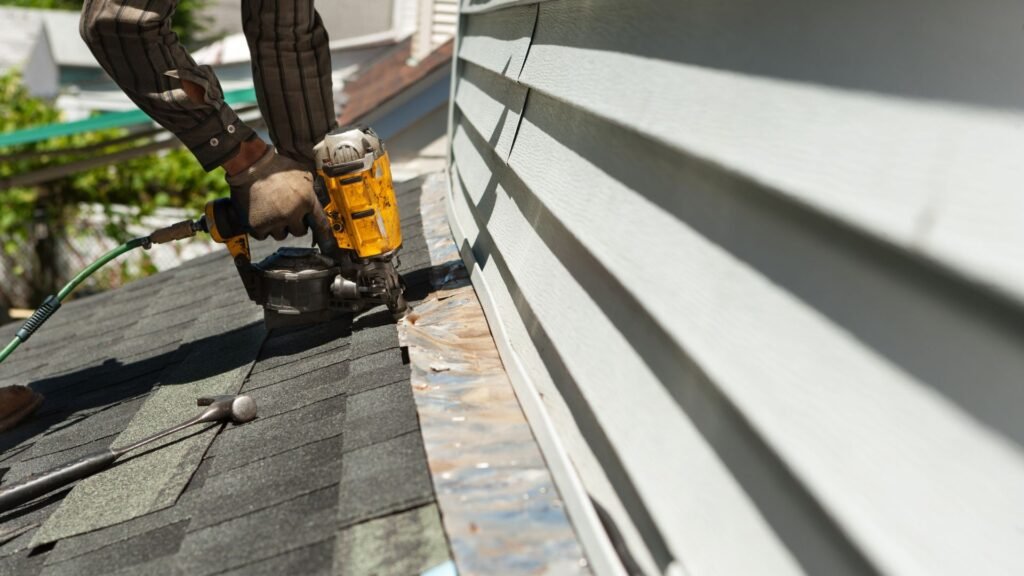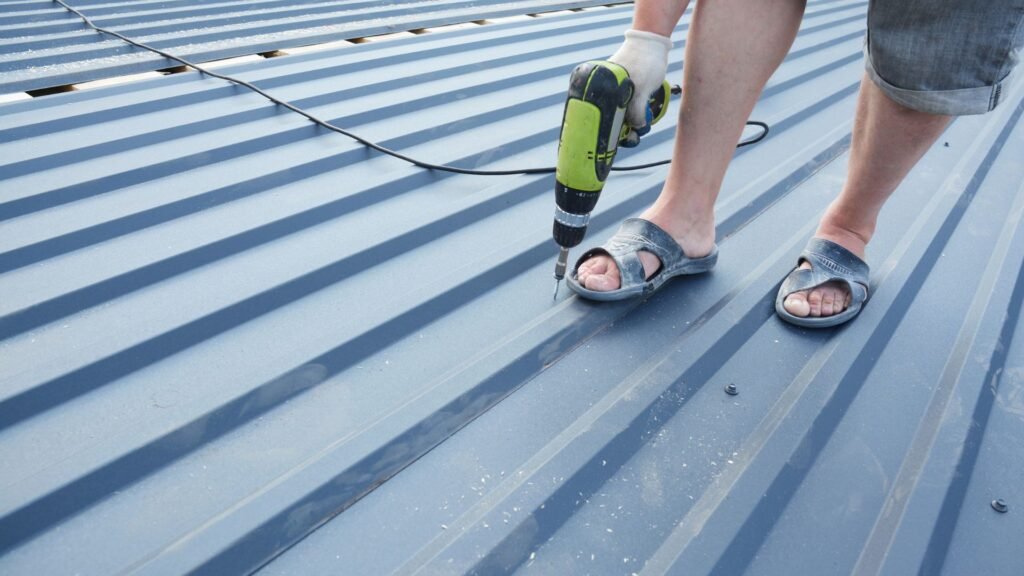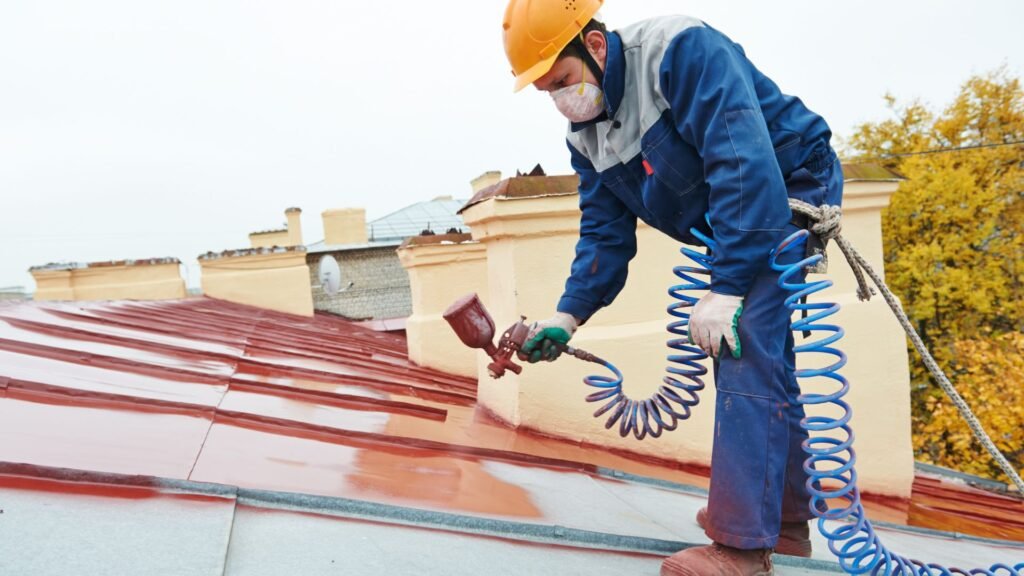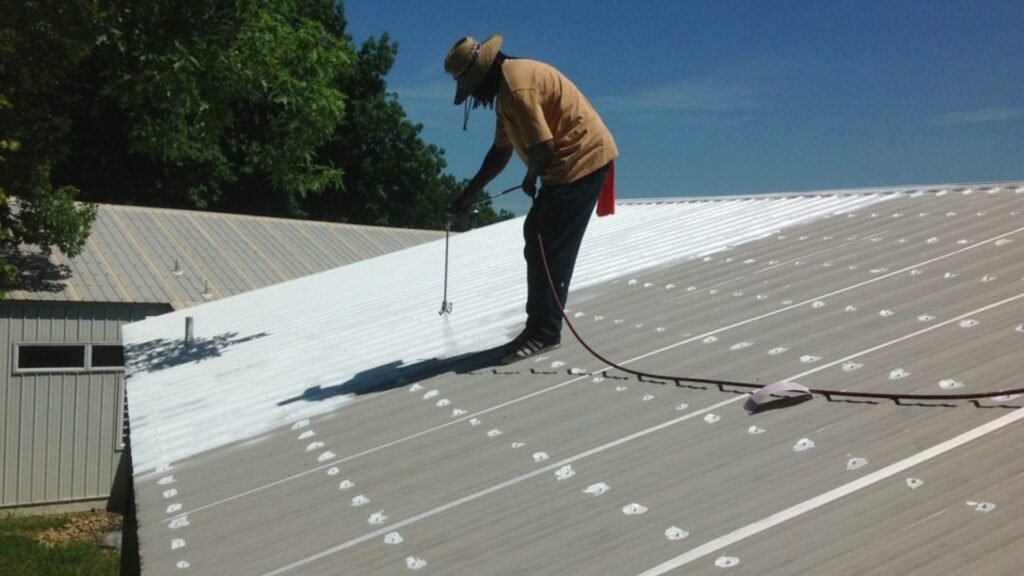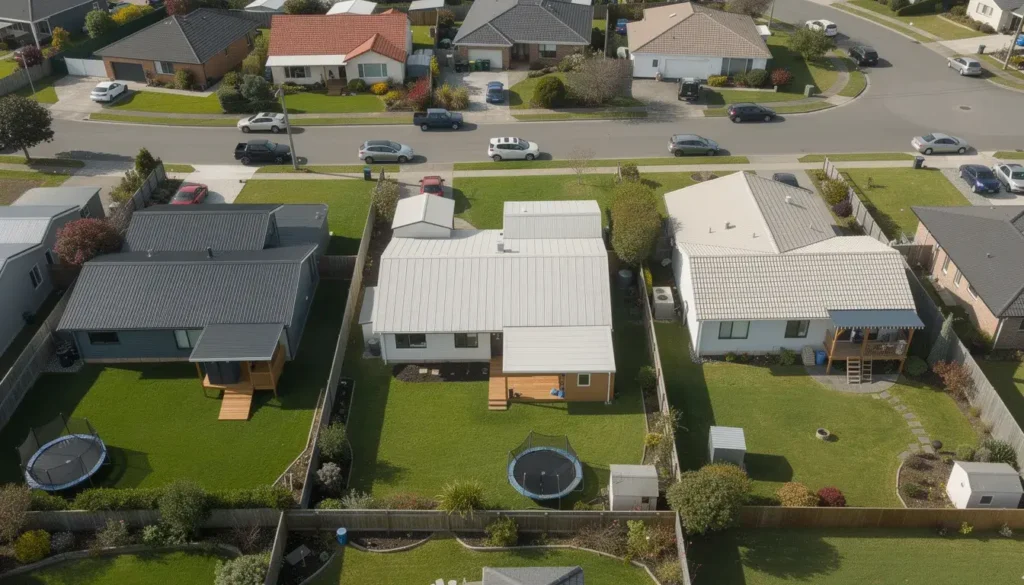Welcome to our comprehensive guide on the cost to reroof a garage in New Zealand. Maintaining your garage roof is crucial for protecting your vehicles and stored items from the often unpredictable Kiwi weather. Reroofing not only enhances protection but also boosts your property’s value and improves its overall aesthetics. In this article, we will delve into the various factors that influence the cost of reroofing a garage, provide detailed cost breakdowns, and offer tips on how to save money during the process. Whether you are considering a DIY project or hiring a professional, understanding these aspects will help you make informed decisions and ensure your garage is well-protected for years to come.
The cost to reroof a garage in New Zealand varies based on factors like garage size, roofing materials, and labor rates. On average, reroofing a single garage can range from $2,000 to $5,000. Costs can increase if additional repairs, insulation, or permits are needed. For accurate estimates, consider material costs, local labor rates, and specific project requirements. Hiring a reputable contractor and comparing quotes can help manage expenses effectively.
Table of Contents
Why Reroofing Your Garage Is Important
Reroofing your garage is a crucial maintenance task that often gets overlooked. Your garage roof plays a vital role in protecting not only the structure itself but also the valuable items stored within, including your vehicles. Here’s a detailed look at why reroofing your garage is so important:
Protection of Vehicles and Stored Items
The primary function of your garage roof is to provide shelter. It shields your vehicles and other stored items from the elements, preventing damage from rain, snow, and sun. Over time, an aging or damaged roof can start to leak, leading to water damage. This can result in rust on your car, damage to stored tools, and even create a conducive environment for mold growth. Reroofing ensures that your garage continues to provide a dry, safe space for your belongings.
Impact of Weather Conditions on Garage Roofs in New Zealand
New Zealand’s diverse weather conditions can take a toll on your garage roof. From heavy rainfall and storms to harsh sunlight and high winds, the materials can degrade over time. In regions prone to heavy rain, a compromised roof can lead to significant water damage. Meanwhile, UV rays can cause roofing materials to become brittle and crack. Given these varying weather conditions, regular inspection and timely reroofing are essential to maintain the integrity of your garage roof.
Benefits of Reroofing
- Enhanced Protection: By reroofing, you ensure that your garage is well-protected against the elements. Modern roofing materials offer better resistance to weather conditions, providing a robust barrier that keeps your vehicles and stored items safe.
- Increased Property Value: A well-maintained garage roof can significantly boost your property’s value. Potential buyers will appreciate the fact that they won’t have to deal with immediate roofing issues. This investment in reroofing can offer substantial returns should you decide to sell your property.
- Improved Aesthetics: An old, worn-out roof can be an eyesore. Reroofing your garage not only improves its functionality but also its appearance. A new roof can enhance the overall look of your property, making it more attractive and well-kept.
Reroofing your garage is a critical task that provides numerous benefits, from protecting your valuable items to enhancing your property’s value and aesthetics. Given New Zealand’s challenging weather conditions, ensuring your garage roof is in top condition is an investment in the longevity and safety of your belongings. Don’t wait for problems to arise—consider reroofing your garage to enjoy these benefits and maintain the integrity of your property.

Factors Influencing The Cost To Reroof A Garage
Reroofing a garage can be a significant investment, and understanding the factors that influence the cost can help homeowners in New Zealand plan their budgets more effectively. Let’s dive into the key elements that determine the cost of this project.
Size of the Garage
The size of the garage is one of the most crucial factors in determining the reroofing cost. Larger garages require more materials and labor, which naturally increases the overall expense. On average, a single-car garage in New Zealand measures about 3.6 meters by 6 meters, while a double-car garage is around 6 meters by 6 meters. Reroofing a single-car garage will typically cost less than a double-car garage due to the smaller area that needs coverage.
Type of Roofing Material
The type of roofing material chosen for the project significantly impacts the cost. In New Zealand, homeowners have several popular options, each with its own price range and benefits:
- Asphalt Shingles: These are a common choice due to their affordability and ease of installation. They cost around NZD 50 to NZD 70 per square meter.
- Metal Roofing: Known for its durability and longevity, metal roofing is more expensive, ranging from NZD 80 to NZD 120 per square meter.
- Tiles: Tile roofing, which includes concrete and clay tiles, is on the higher end of the cost spectrum, averaging between NZD 100 to NZD 150 per square meter.
Choosing the right material involves considering not just the initial cost but also the longevity and maintenance requirements of each option.
Labor Costs
Labor costs can vary significantly across different regions of New Zealand. In larger cities like Auckland and Wellington, labor rates tend to be higher due to the increased cost of living. On average, labor costs for reroofing can range from NZD 50 to NZD 100 per hour. The complexity and duration of the job also play a role; more intricate designs or problematic installations will require more time and skilled labor, thus increasing the overall cost.
Condition of Existing Roof
The condition of the existing roof affects both the labor and material costs. If the old roof needs to be removed, this adds to the labor time and disposal costs. Additionally, if there are underlying structural issues or damage that need to be addressed before the new roof can be installed, these repairs will add to the total expense. On average, roof removal and disposal can cost between NZD 30 to NZD 50 per square meter.
Additional Features and Upgrades
Incorporating additional features or upgrades into your reroofing project can significantly impact the cost. For instance:
- Insulation: Adding insulation to your garage roof can improve energy efficiency but will add to the initial expense.
- Skylights: Installing skylights is a popular upgrade for adding natural light but involves additional materials and labor.
- Gutters and Downspouts: Replacing or adding new gutters and downspouts can also increase the overall cost.
Each of these features offers long-term benefits but requires careful consideration of the additional costs involved.
Permits and Regulations
Finally, local building regulations and permit requirements can influence the cost of reroofing a garage. In New Zealand, obtaining the necessary permits is essential to ensure that the work complies with local building codes and standards. Permit costs vary by region and the scope of the project but typically range from NZD 200 to NZD 500. Failing to secure the required permits can result in fines and may affect the resale value of the property.
By considering these factors, homeowners can better anticipate the costs associated with reroofing a garage and make informed decisions that align with their budget and needs.
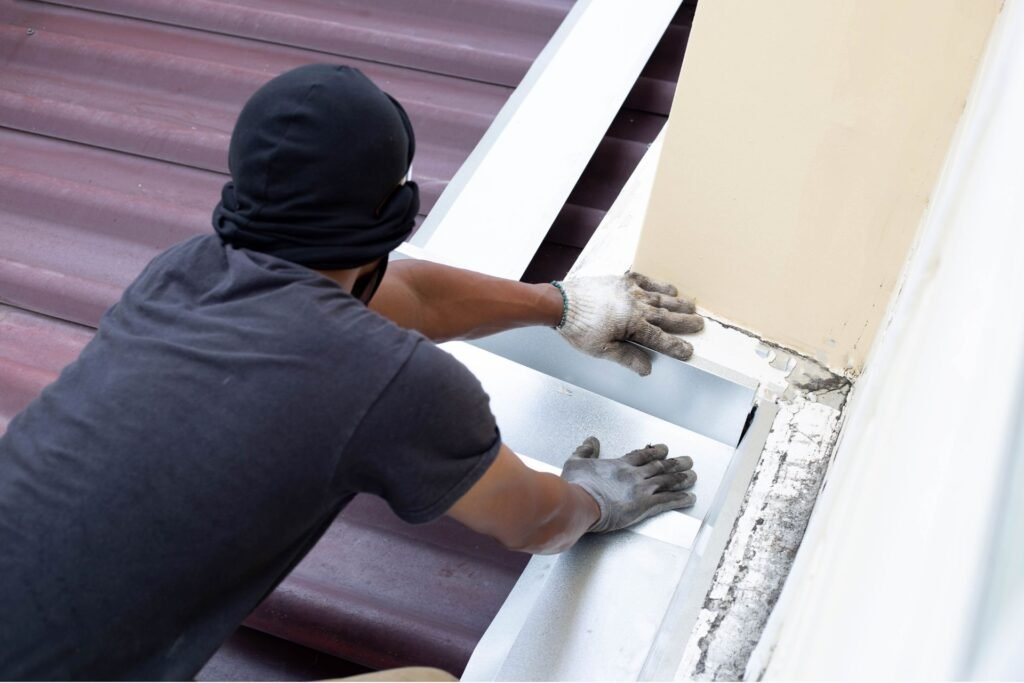
Breakdown Of Reroofing Costs
When considering reroofing your home, understanding the various costs involved is essential. Here’s a comprehensive breakdown of the expenses you can expect, ensuring you’re well-prepared for every aspect of the project.
Material Costs
The type of roofing material you choose significantly impacts the overall cost. Here’s a detailed look at the pricing for different roofing materials:
- Asphalt Shingles: The most common roofing material, asphalt shingles, typically cost between $90 and $100 per square meter. They are affordable, durable, and come in a variety of colors and styles.
- Metal Roofing: Metal roofs are more expensive, ranging from $150 to $350 per square meter, depending on the type of metal (steel, aluminum, or copper). They are highly durable and energy-efficient, often lasting over 50 years.
- Tile Roofing: Clay and concrete tiles can cost between $250 and $500 per square meter. While they are heavy and may require additional structural support, they offer excellent durability and a distinctive look.
- Wood Shingles and Shakes: These can range from $200 to $350 per square meter. They provide a natural appearance but require more maintenance and are less fire-resistant.
- Slate Roofing: Slate is one of the most expensive options, costing between $500 and $700 per square meter. However, it offers unparalleled durability and a luxurious appearance.
Labor Costs
Labor costs for reroofing can vary widely based on several factors, including the complexity of the job and the roofing material used.
- Average Labor Costs: On average, labor costs can range from $80 to $120 per square meter. This cost includes removing the old roof, preparing the roof deck, and installing the new roofing material.
- Job Complexity: Simple, straightforward reroofing jobs on single-story homes with easy access can be at the lower end of the cost spectrum. However, complex jobs involving multiple stories, steep pitches, or difficult access can increase labor costs significantly. In such cases, labor costs can rise to $150 or more per square meter.
Additional Costs
Apart from material and labor costs, several additional expenses may arise during a reroofing project:
- Removal and Disposal of Old Roofing Material: Removing and disposing of old roofing material can add $10 to $20 per square meter to your overall costs. This step is necessary to ensure a clean, smooth surface for the new roofing material.
- Structural Repairs: If your roof deck or underlying structure is damaged, repairs will be necessary before the new roof can be installed. The cost of these repairs varies widely based on the extent of the damage but can range from a few hundred to several thousand dollars.
- Potential Hidden Costs: Hidden costs can emerge during the reroofing process, such as discovering water damage, mold, or pest infestations. It’s wise to budget an additional 10-15% of the total project cost to cover these unexpected expenses.
By understanding these detailed breakdowns of reroofing costs, you can plan your budget more effectively and avoid any surprises along the way. Always obtain multiple quotes from reputable contractors to ensure you receive a fair and accurate estimate for your reroofing project.

Cost Estimation Examples
When planning to build or renovate a garage, understanding the cost involved is crucial. Here, we provide detailed cost estimates for three different garage scenarios: a small garage with asphalt shingles, a medium garage with metal roofing, and a large garage with tile roofing. These examples will give you a clear idea of what to expect in terms of expenses, covering materials, labor, and additional costs.
Small Garage with Asphalt Shingles
Materials
- Asphalt Shingles: Asphalt shingles are one of the most cost-effective roofing materials. For a small garage, you’ll need approximately 600 square feet of shingles. At an average cost of $1.50 per square foot, the total for shingles comes to $900.
- Roof Decking: The plywood decking required will cost around $800.
- Underlayment: Expect to spend about $150 on roofing underlayment.
- Nails and Adhesives: These will cost around $50.
Labor
- Roofing Installation: Labor costs for installing asphalt shingles on a small garage typically range from $2 to $3 per square foot. Assuming an average of $2.50 per square foot for 600 square feet, labor will cost around $1,500.
Additional Costs
- Permits and Inspection: You may need permits and an inspection, costing around $200.
- Waste Disposal: Disposing of old roofing materials and construction waste will cost approximately $100.
- Total Estimated Cost: $3,700
Medium Garage with Metal Roofing
Materials
- Metal Roofing Panels: Metal roofing is more durable but slightly more expensive than asphalt shingles. For a medium garage requiring 1,000 square feet of metal panels, at $4 per square foot, the total is $4,000.
- Roof Decking: Costs for plywood decking will be around $1,200.
- Underlayment: Metal roofs require high-quality underlayment, costing around $300.
- Fasteners and Clips: These specialized fasteners will cost around $200.
Labor
- Roofing Installation: Labor for metal roofing is higher, typically $4 to $5 per square foot. Assuming $4.50 per square foot for 1,000 square feet, labor costs will be about $4,500.
Additional Costs
- Permits and Inspection: Permits and inspection costs will be around $300.
- Waste Disposal: Disposal costs will be approximately $150.
- Total Estimated Cost: $10,450
Large Garage with Tile Roofing
Materials
- Tile Roofing: Tile roofing is the most expensive option due to its durability and aesthetic appeal. For a large garage needing 1,500 square feet of tiles, at $7 per square foot, the total is $10,500.
- Roof Decking: The cost for plywood decking will be around $1,800.
- Underlayment: High-quality underlayment for tile roofing will cost about $450.
- Mortar and Fasteners: These materials will add up to around $400.
Labor
- Roofing Installation: Installing tile roofing is labor-intensive, costing between $6 to $8 per square foot. At an average of $7 per square foot for 1,500 square feet, labor will total $10,500.
Additional Costs
- Permits and Inspection: These costs will be around $400.
- Waste Disposal: Disposal of old materials and construction waste will cost approximately $200.
- Total Estimated Cost: $24,250
Understanding the costs associated with different types of garage roofing is essential for effective budgeting. Whether you opt for the affordability of asphalt shingles, the durability of metal roofing, or the elegance of tile roofing, each choice comes with its own set of expenses. By breaking down these costs into materials, labor, and additional expenses, you can make a well-informed decision that fits your budget and needs.

Ways To Save Money On Reroofing
Reroofing your home can be a significant investment, but there are several strategies to help you save money while ensuring a quality job. Here, we’ll explore various cost-saving approaches, from deciding between DIY and professional services to taking advantage of seasonal discounts and comparing quotes.
DIY vs. Professional Services
Pros and Cons of DIY Reroofing
Taking on a reroofing project yourself can lead to substantial savings on labor costs. If you have the necessary skills and experience, DIY reroofing allows you to control the entire process, ensuring that every detail meets your standards. Additionally, completing the job yourself can be a rewarding experience, providing a sense of accomplishment.
However, there are significant downsides to consider. Reroofing is labor-intensive and dangerous, requiring proper safety equipment and knowledge. Mistakes can be costly and might end up needing professional intervention to correct, potentially wiping out any initial savings. Furthermore, DIY projects often take longer to complete, which could expose your home to the elements for an extended period.
When to Consider Hiring Professionals
Hiring professional roofing contractors is generally the safer and more efficient option. Professionals bring experience, specialized tools, and a team to complete the job quickly and correctly. They are also insured, which protects you from liability in case of accidents or damage.
Consider hiring professionals if the roofing project is extensive, if you lack the necessary skills or time, or if your roof has complicated features like steep pitches or multiple layers. The peace of mind knowing that the job is done right can be worth the additional cost.
Buying Materials in Bulk
Potential Savings from Purchasing Roofing Materials in Bulk
Buying roofing materials in bulk can lead to significant savings, especially if you have a large roof or multiple properties. Suppliers often offer discounts on bulk purchases, reducing the per-unit cost of shingles, underlayment, nails, and other materials. These savings can add up quickly, making bulk buying an attractive option.
To maximize these benefits, plan your purchase carefully. Measure your roof accurately to determine the exact amount of materials needed, and consider partnering with neighbors or friends who also need reroofing to increase your purchasing power. Always check the quality and warranty of the materials to ensure you’re not sacrificing durability for cost.
Seasonal Discounts and Offers
Best Times of the Year to Schedule Reroofing for Potential Discounts
Timing your reroofing project can significantly impact the overall cost. Roofing companies often offer discounts during their off-peak seasons, typically in late fall and winter. During these periods, demand for roofing services is lower, and contractors may lower prices to keep their crews busy.
Planning your project for these slower periods can help you secure a better rate. However, it’s essential to consider the weather conditions in your area. Ensure that the roofing can be completed without risking damage from adverse weather.
Comparing Quotes
Importance of Getting Multiple Quotes from Different Contractors
One of the most effective ways to save money on reroofing is to obtain multiple quotes from different contractors. This practice allows you to compare prices, services, and the scope of work offered by each contractor. By doing so, you can identify the best value for your money and avoid being overcharged.
What to Look for in a Quote to Ensure All Costs Are Covered
When comparing quotes, look beyond the bottom line. A comprehensive quote should include the cost of materials, labor, permits, and disposal of old roofing materials. It should also outline the project’s timeline and any warranties offered.
Be wary of quotes that seem unusually low, as they may exclude essential components or use substandard materials. Ensure that the contractor is licensed and insured, and read reviews or ask for references to gauge their reliability and quality of work.
By carefully considering these factors and taking a strategic approach to your reroofing project, you can achieve a durable, high-quality roof without overspending.

Hiring A Roofing Contractor In NZ
When it comes to roofing projects, hiring the right contractor is crucial to ensure the job is done correctly and efficiently. In New Zealand, the process of finding a reputable roofing contractor involves several steps, from initial research to understanding the fine print of contracts and warranties. This section will guide you through the essential aspects of hiring a roofing contractor in NZ.
Finding Reputable Contractors
The first step in your roofing project is to find reputable contractors. This involves a few key strategies:
1. Research and Recommendations: Start by asking friends, family, or colleagues for recommendations. Personal referrals are often the most reliable. Additionally, use online resources like review websites, social media, and industry directories to compile a list of potential contractors.
2. Checking Reviews and References: Once you have a list, delve into online reviews. Look for contractors with consistently high ratings and positive feedback. It’s also wise to ask the contractors directly for references from previous clients. Speaking to past customers can provide valuable insights into the contractor’s workmanship and reliability.
3. Certifications and Accreditations: Verify that the contractors hold the necessary certifications and accreditations. In New Zealand, look for memberships in professional bodies such as the Roofing Association of New Zealand (RANZ), which ensures adherence to industry standards and ethical practices.
Questions to Ask Potential Contractors
When you’ve narrowed down your list of potential contractors, it’s time to engage with them directly. Asking the right questions can help you gauge their suitability for your project. Here are some essential questions to consider:
1. Experience and Expertise: Inquire about their experience in the roofing industry. How long have they been in business? Do they have specific experience with the type of roofing material you plan to use?
2. Licenses and Insurance: Ensure the contractor is properly licensed and insured. This protects you from liability in case of accidents or damages during the project.
3. Warranties: Ask about the warranties they offer. A reputable contractor should provide warranties on both materials and workmanship. Clarify the duration and coverage of these warranties.
4. Project Timeline: Discuss the expected timeline for your roofing project. When can they start, and how long will the project take? Understanding the timeline helps you plan accordingly and sets clear expectations.
5. Detailed Quote: Request a detailed, written quote that includes all costs. This should cover materials, labor, permits, and any additional fees. A transparent quote helps prevent unexpected expenses.
Understanding Contracts and Warranties
Before committing to a contractor, it’s crucial to thoroughly review the contract and warranty terms. Here’s what to look for:
1. Contract Details: The contract should outline the scope of work, materials to be used, project timeline, and payment schedule. Ensure everything discussed is documented in the contract. Clear terms prevent misunderstandings and disputes.
2. Warranty Terms: Carefully read the warranty terms. Understand what is covered under the warranty and for how long. A comprehensive warranty should cover both materials and workmanship. Be aware of any conditions that might void the warranty, such as improper maintenance.
3. Change Orders: The contract should include a clause about change orders. This outlines the procedure for making changes to the project scope, including how changes will be documented and billed.
4. Termination Clause: Check for a termination clause that details the conditions under which either party can terminate the contract. This provides an exit strategy if the contractor fails to meet agreed-upon standards.
By following these steps, you can ensure you hire a reputable roofing contractor in NZ who will deliver quality work and peace of mind. Proper vetting, asking the right questions, and understanding your contract and warranty terms are essential components of a successful roofing project.
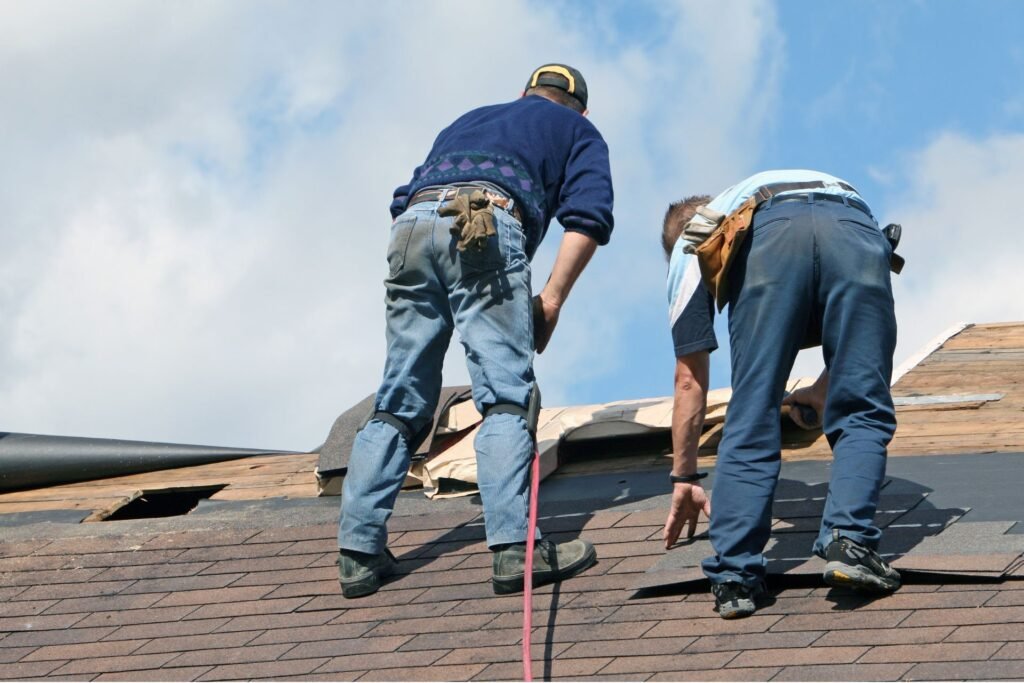
FAQs: About Cost To Reroof A Garage NZ
What factors influence the cost to reroof a garage in NZ?
The cost to reroof a garage in NZ is influenced by factors such as the size of the garage, the type of roofing material used, labor costs, the condition of the existing roof, additional features or upgrades, and any necessary permits or regulations.
What are the most common roofing materials used for garages in NZ?
Common roofing materials used for garages in NZ include asphalt shingles, metal roofing, and tiles. Each material varies in cost, durability, and aesthetic appeal.
How much does labor typically cost for reroofing a garage in NZ?
Labor costs for reroofing a garage in NZ can vary depending on the complexity and duration of the job. On average, labor costs range from $40 to $70 per hour, but this can vary by region and contractor.
Are there any additional costs associated with reroofing a garage?
Yes, additional costs can include removing and disposing of the old roofing material, any necessary structural repairs, insulation, and potential hidden costs such as damage discovered during the reroofing process.
How can I save money on reroofing my garage?
To save money on reroofing your garage, consider doing some of the work yourself if you have the skills, buying materials in bulk, scheduling the work during off-peak seasons for potential discounts, and getting multiple quotes from different contractors to compare prices.
What should I look for when hiring a roofing contractor in NZ?
When hiring a roofing contractor in NZ, look for reputable contractors with good reviews and references, ask about their experience and warranties, and ensure they provide a detailed contract that includes all aspects of the job and costs.
How often should a garage roof be replaced?
The frequency of replacing a garage roof depends on the material used and the environmental conditions it is exposed to. Typically, asphalt shingles last 15-20 years, metal roofing lasts 40-70 years, and tiles can last up to 50 years or more with proper maintenance.
Do I need a permit to reroof my garage in NZ?
In most cases, you will need a building consent or permit to reroof your garage in NZ, especially if it involves structural changes. It’s important to check with your local council for specific regulations and requirements.
Can I reroof my garage myself, or should I hire a professional?
While DIY reroofing can save money, it requires significant skill and knowledge to ensure the job is done correctly and safely. Hiring a professional is recommended for most homeowners to ensure high-quality work and adherence to building codes.
What are the benefits of reroofing a garage?
Reroofing a garage offers several benefits, including enhanced protection for vehicles and stored items, increased property value, improved aesthetics, and better overall structural integrity. It also helps prevent leaks and damage caused by weather conditions.
Conclusion
In conclusion, we’ve delved into the essential aspects of reroofing, highlighting the various factors influencing costs and the significance of material selection. Planning and budgeting are crucial for a successful reroofing project, ensuring that you are prepared for any unexpected expenses. It’s imperative to seek professional advice to obtain precise cost estimates tailored to your specific needs, as this can prevent costly surprises down the line. By understanding these key points, homeowners can make informed decisions, ensuring a durable and cost-effective roofing solution that enhances their home’s value and longevity.
About the Author:
Mike Veail is a recognized digital marketing expert with over 6 years of experience in helping tradespeople and small businesses thrive online. A former quantity surveyor, Mike combines deep industry knowledge with hands-on expertise in SEO and Google Ads. His marketing strategies are tailored to the specific needs of the trades sector, helping businesses increase visibility and generate more leads through proven, ethical methods.
Mike has successfully partnered with numerous companies, establishing a track record of delivering measurable results. His work has been featured across various platforms that showcase his expertise in lead generation and online marketing for the trades sector.
Learn more about Mike's experience and services at https://theleadguy.online or follow him on social media:


